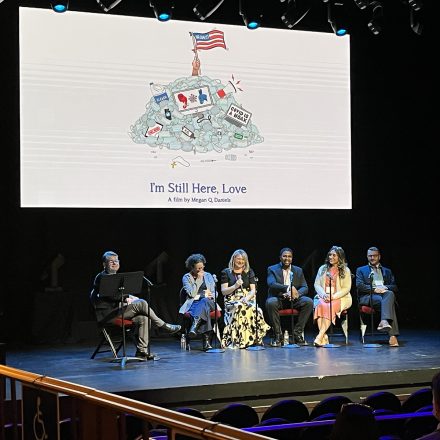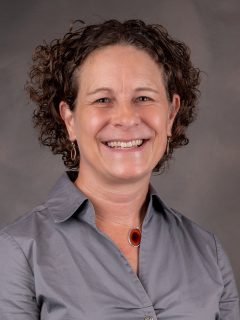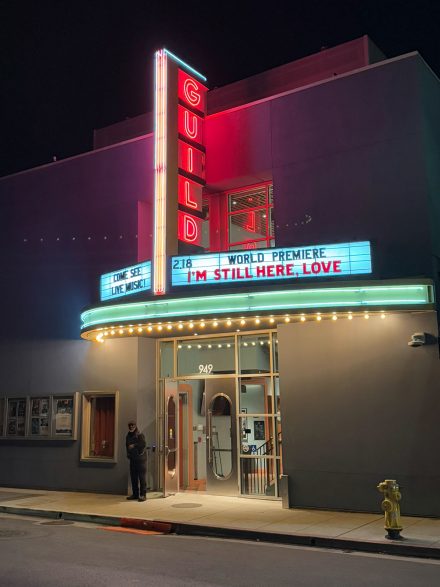Following the film’s world premiere in California last month, the assistant professor of cinema and television arts will share her film with the Elon University community, delving into the dangers of misinformation and racial health disparities.
The School of Communications will host a screening of “I’m Still Here, Love,” a new film from Assistant Professor of Cinema and Television Arts Meg Daniels that explores the human cost of COVID-19 vaccine mis- and disinformation. The on-campus event in Turner Theatre is set for Wednesday, April 2, at 7 p.m., with a virtual Q&A session with cast members to follow.

Inspired by personal loss and the haunting realities of the pandemic, “I’m Still Here, Love” follows the lives and deaths of three men – Randy, Louis and D’Anthony – whose stories are tied together by vaccine hesitancy and the consequences of disinformation. Daniels, a professional filmmaker and photographer with more than three decades of experience, was compelled to make the film shortly after her close friend, Jessica, lost her father to COVID-19. For 12 days, Jessica watched her father suffer and eventually lose his life to the virus over FaceTime. She was not allowed at his side due to hospital protocols. He had refused the vaccine.

“We were compelled to reveal the dangers of mis- and disinformation,” Daniels said. “When people hear that someone died from COVID, too many of them are questioning someone’s vaccine status before offering condolences as if their deaths were preventable. As a result, the family members who lost their loved ones are now suffering from disenfranchised grief.”
The film seeks to remind people to approach those who lost loved ones to COVID with sympathy, humanity, and sensitivity – regardless of their choice not to vaccinate. It also highlights how misinformation spreads, leading some to believe that forgoing the vaccine was the safest decision.
Daniels celebrated the film’s world premiere in February at The Guild Theater in Menlo Park, California. The screening was hosted by Stanford University, with support from a generous donation from Pfizer, and drew six of the eight cast members. Among them was D’Anthony’s mother, Lydia, who – despite experiencing some overwhelming emotions during the screening – returned to the stage to speak eloquently about racial health disparities.

“The bravery Lydia showed that night is something I’ll never forget,” Daniels said.
According to Daniels, the film has received positive feedback and genuine interest in the topic, with viewers praising its timeliness, emotional depth, and educational value. At last month’s screening, several audience members – complete strangers – embraced the cast, moved by the film’s stories of sorrow and loss.
Daniels hopes Elon students will take advantage of the on-campus screening. “Our students lived in a bubble during the pandemic – isolated and largely protected from the health disparities that fueled it,” she said. “This film will open their eyes to the dangers of social media disinformation and the very real consequences of racial health inequities.”
Ultimately, Daniels wants viewers to leave with a heightened awareness of how misinformation spreads – and the empathy to meet loss with compassion.


